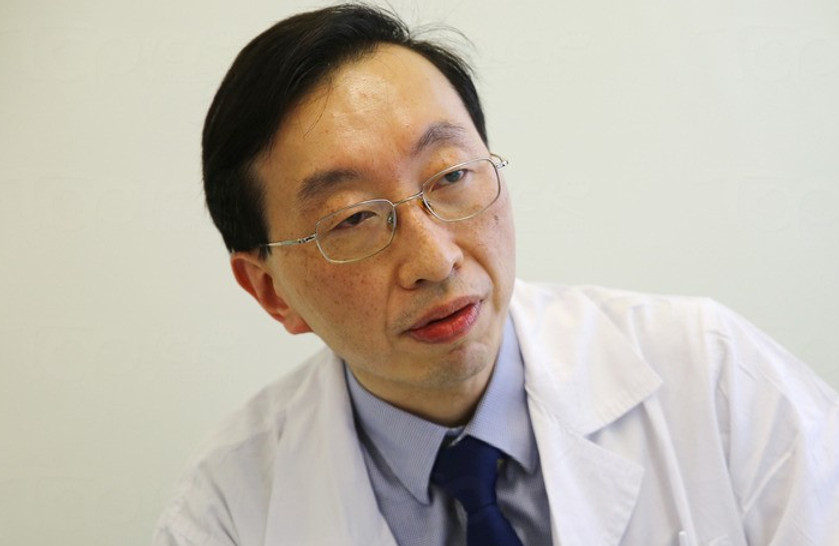14 | Our Doctors
Dr Bun Sheng

The journey with rare diseases
Dr. Sheng works as a neurologist. Being a part of the Hospital Authority’s Lysosomal Storage Disorder expert panel, he came into contact with HKARD, and here starts his journey with rare diseases. Working as a doctor for years, it is inevitable that he meets patients of rare diseases. He once had a patient who experienced frequent epileptic seizures, but her symptoms were different from typical epilepsy patients. With further check-ups and tests, he discovered that she had been misdiagnosed for years; instead of epilepsy, she was suffering from urea cycle disorder, a rare disease, and gave her the suitable medication and dietary recommendations. Years later, he met her again, now working as a cashier. Seeing his then patient enjoying her life, he felt a huge sense of fulfilment.
A different approach
Although Hong Kong’s medical system is sophisticatedly divided, it may not be good news for rare disease patients and their doctors. Rare disease patients are rather dispersed as a result; and hence, doctors are unable to meet more rare disease patients and accumulate knowledge and experience, as well as understanding these disorders and patients’ needs. Dr. Sheng discovered the importance of a centralized approach towards treating rare diseases in one of his trials. Seeing that some familial amyloidotic polyneuropathy patients were referred to his clinic, he decided to organize a patient gathering, and by chance, discovered that these rare disease patients sought support from peers with the same experience, as well as the numerous benefits of a centralized approach.
Dr. Sheng believes that centralizing rare disease patients for treatment benefits both parties. While patients can reach out for support from their peers, as well as learning more about their disease from them, a centralized treatment also helps doctors to enrich their knowledge on rare diseases and understand their needs better. Having a team focused on treating rare diseases can provide patients with a more integrated and convenient treatment, allow accumulation of knowledge, experience and passing down such information to younger doctors, and even help with scientific research and development of new treatment methods, giving patients a wider variety of treatment methods. He stated that this should be the direction of treating rare diseases in the future.
About Dr Sheng
Occupation
Neurology Specialist and Associate Consultant
at Princess Margaret Hospital
Involvement with Rare Disease
For over a decade
Professional Service
HA LSD (lysosomal storage disorder) expert panel

“On the journey of being a doctor, you will discover that the most influential ones aren’t your professors, but rather, are your patients.”
Going hand in hand with patients
Luckily, Hong Kong’s society is quite acceptive towards rare diseases. Resources aren’t lacking, and although like many other social welfare, the applications may be quite complex, it provides support in a wide coverage, such as housing, transport and rehabilitation. To Dr. Sheng, rare diseases not only brings suffering to the patients, but also brings burden to his family. Hence, it is crucial to help lower the family’s burden, as well as aid rare disease patients in integrating into the society. Examples like providing more assistive treatment, or even more dormitories and increasing awareness of the general public, can already benefit both the patients and their families. After all, the government needs to take the lead, and set policies that would help create a more harmonious environment for rare disease patients, lower their burden, and go hand in hand with patients.
Words to future doctors
Towards the end of the interview, Dr. Sheng hopes that future doctors can stay humble and be open to learning from rare disease patients. In the case of rare diseases, the doctor’s knowledge may not be necessarily more than that of the patients. Therefore, doctors must always remind themselves to be receptive, and learn from patients whenever necessary, as this helps the doctors to understand the patients at a deeper level and provide adequate support. Afterall, the ones who influence doctors the most are not the professors, but rather, his numerous patients.


